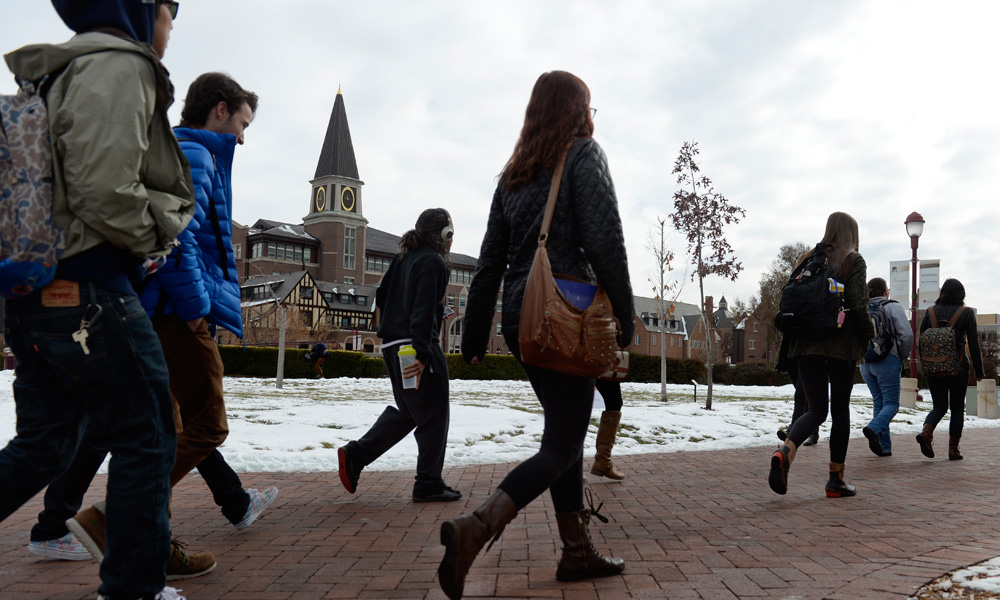In it, Leff dealt with the incongruity of federal laws that prevent marijuana businesses from deducting legitimate business expenses from their taxes, a problem he suggests could be averted by establishing a nonprofit enterprise.
That Harvard would take on the topic raised a few eyebrows.
“What makes this distinctive is it is going from something disreputable to something with a jokable rebel vanguard, with lectures from characters such as Cheech and Chong,” Berman said. “It’s still significantly prohibited and socially stigmatized. But this is the transition period, and it’s moving very quickly.”
It was the Harvard seminar that New York City attorney Marc Ross said offered the legitimacy he sought to convince the dean at Hofstra University’s Maurice A. Deane School of Law that such a class specific to marijuana could succeed.
“They were reluctant at first then cautiously optimistic,” Ross said. “This is the next wave. And good or ugly, it is here, and law schools have to pay attention to it.”
With medical marijuana about to be approved by voters in New York last summer, a client last summer asked Ross to venture to Colorado to look into a marijuana business, “a due-diligence trip,” he called it.
“I wasn’t at all interested. But when I got there, I was sold,” Ross said of his trip to Denver. “I was just blown away with how mainstream and professional it all was.”
A conversation with the dean made it clear a class could work.
“The clashes between marijuana and law make it a classic training ground for young lawyers,” Ross said. “Things that look so simple are not, with so many implications many haven’t thought about.”
Strain showdown: Pot critic Jake Browne’s ‘Top 10 strains I smoked this year’

Ross’ class at the Hempstead, N.Y.,-based school, Business and Legal Issues Related to Marijuana, was limited to 25 students and filled immediately. There’s a waiting list of 50 more.
By using a fictional business, Cannabis Inc., Ross hopes to explore the various issues at play, from regulatory and ethical to planning and enforcement.
“Right now it still has taint to it because it’s a new industry,” Ross said. “But this is a time that’s ahead of the curve.”
At Vanderbilt University School of Law in Nashville, Tenn., professor Robert Mikos said marijuana’s growing legalization made it a natural fit for its own class. Previously marijuana-related material was in the school’s class on drug law and policy, appropriate as marijuana remains illegal in Tennessee.
“I discovered over time that the rules governing marijuana had morphed into a separate and distinct body of law, and there are more disagreements and authority disputes,” said Mikos, who directs the school’s program in law and government.
In California, assistant professor David Ball is teaching a “mini think tank” at Santa Clara University School of Law, focusing on the impact recreational legalization could have on that state. Although only medical marijuana is legal in California, recreational sales could be on ballots by 2016.
To that end, Ball’s class will offer its analysis to the American Civil Liberties Union, which is running a panel studying the ramifications of legalized marijuana.
The panel is led by Lt. Gov. Gavin Newsom.
“Every five years there is something hot that has the range of controversy and reticence to make interesting and important,” Berman said. “Casino gambling, same-sex marriage and the intellectual property of the Internet all rose to that very same level.”
Banking issues: Get caught up on the problems facing marijuana businesses over banking regulations
Although the first legal medical marijuana sales were approved in 1996 in California, pot remained in the shadows of classroom discussion. That’s changed.
“The moves by voters in Colorado and Washington to legalize recreational sales put the debates on warp speed,” Berman said.
For McElwain, the DU student, marijuana law carries a double-edged meaning: Her mother was a cancer victim, and her boyfriend works in the industry’s infused-products sector.
“It’s history in the making and changes by the moment,” she said. “It’s a chance as a lawyer to get in from the beginning. It’s exciting.”
David Migoya: 303-954-1506, dmigoya@denverpost.com or twitter.com/davidmigoya
